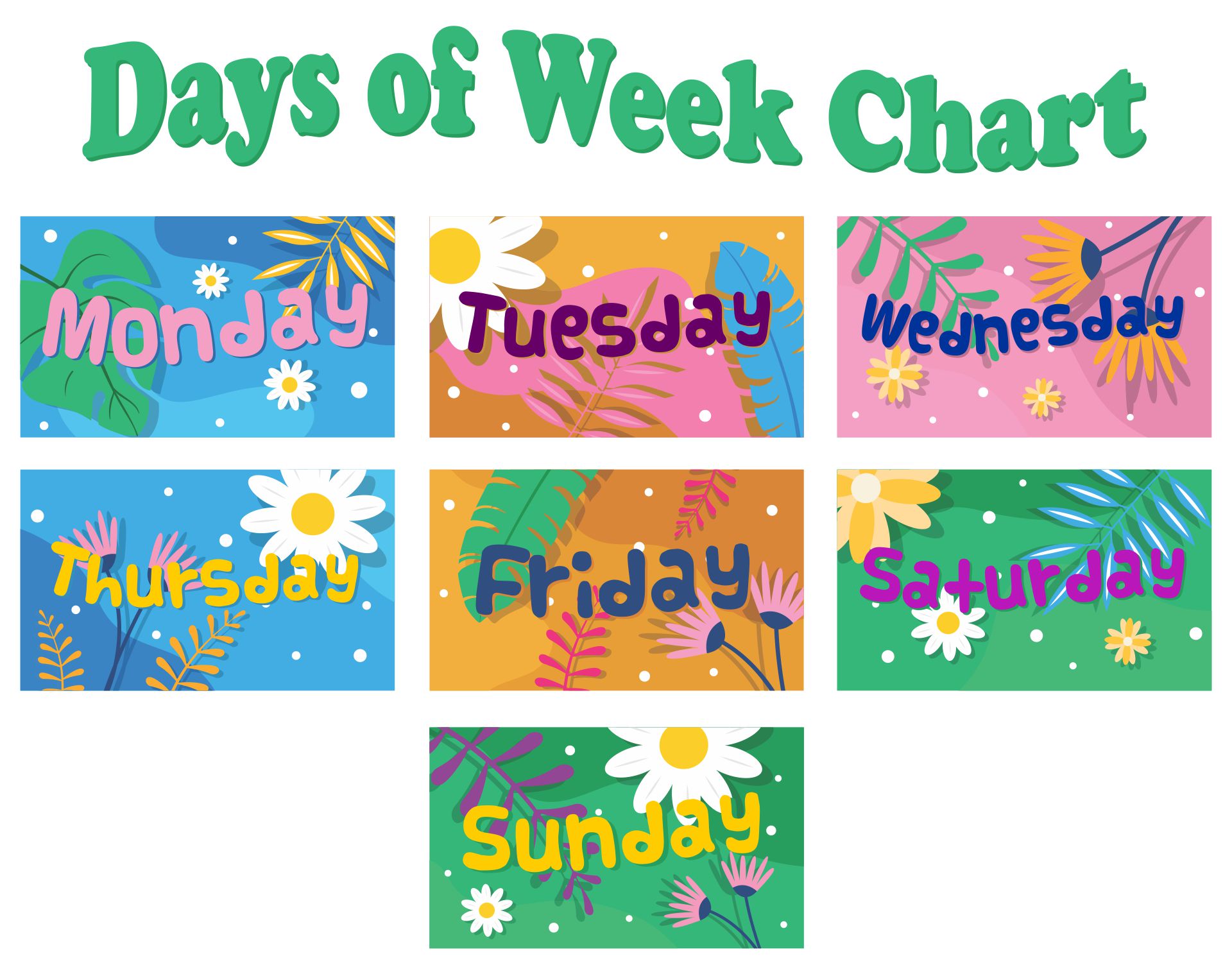
Monday
Monday is the first day of the week. It is named after the Moon in many cultures. In the Western world, it is often considered the most dreaded day of the week as it marks the end of the weekend and the start of the workweek. Many people feel the Monday blues and struggle to get out of bed. However, it is also a fresh start and a chance to set goals for the week ahead.
Tuesday
Tuesday is the second day of the week. It is named after the god Tiw, who was associated with war and justice in Norse mythology. In many cultures, Tuesday is considered a lucky day for new beginnings and making important decisions. It is also a popular day for elections and other significant events.

Wednesday
Wednesday is the third day of the week. It is named after the god Odin, who was the ruler of Asgard in Norse mythology. In many cultures, Wednesday is known as "hump day" as it marks the middle of the workweek. It is often seen as a day to push through difficult tasks and get over the "hump" of the week.

Thursday
Thursday is the fourth day of the week. It is named after the god Thor, who was the god of thunder and lightning in Norse mythology. In many cultures, Thursday is considered a day of power and strength. It is also a popular day for religious and spiritual practices, such as prayer and meditation.

Friday
Friday is the fifth day of the week. It is named after the goddess Frigg, who was the wife of Odin in Norse mythology. In many cultures, Friday is associated with celebration and relaxation as it marks the end of the workweek and the start of the weekend. It is a popular day for socializing and going out with friends and family.

Saturday
Saturday is the sixth day of the week. It is named after Saturn, the Roman god of agriculture and harvest. In many cultures, Saturday is considered a day of rest and relaxation. It is a popular day for leisure activities such as sports, hobbies, and travel. In some parts of the world, it is also a day for religious observance and worship.
Sunday
Sunday is the seventh and final day of the week. It is named after the Sun, which was worshiped as a deity in many ancient cultures. In many parts of the world, Sunday is considered a day of rest and worship. It is a popular day for attending church, spending time with family, and relaxing before the start of a new week.
Conclusion
The days of the week have been an important part of human culture for thousands of years. They have been named after gods, goddesses, and celestial bodies, and have been associated with various meanings and traditions. Whether we love them or hate them, the days of the week are an essential part of our lives and help us to organize our time and activities.